Ekaterina Shulman is perhaps one of the most famous Russian political scientists. “People don't have to be interested in politics, but they do need to know their rights and understand their interests,” she says. This approach resonated with the masses: Russians named Shulman among the personalities who inspired them in 2020.
Indeed, many of us would like to analyze and comment on complex and confusing processes in government and society in the same clear, far-sighted, and sometimes sarcastic way. We decided that it was time for our readers to get to know Ekaterina Shulman better. Thanks to Ekaterina Mikhailovna’s friendliness, erudition and willingness to discuss any topic, the conversation turned out to be even more frank than we could have dreamed.
Our interview takes place on Zoom - the realities of this in many respects amazing year, which has changed almost everything in our lives. Let’s start with what is perhaps the most pressing issue for parents of schoolchildren, whose first half of the year was mostly completed remotely. All participants in the process still have a lot of questions regarding this form of education, because it is not easy not only for students and their relatives, but also for teachers...
ProPedia: How do you think the situation with distance learning is developing in our country, what is it gravitating towards, what are the moods?
Ekaterina Shulman: I see this situation from two sides - both as a teacher and as a parent. On the one hand, I, like all other higher education workers, was forced to switch to online from the end of October, on the other hand, I have school-age children. What can you observe here? Online learning did not start yesterday. The boom in online education just preceded the pandemic, which made it mandatory. And on the one hand, this is good, because we already had technological experience and techniques. Imagine if the pandemic happened not in 2020, but in 2010! But the dark side of this preparedness is the rather strong temptation to carry over emergency practices for the rest of your life. This worries parents a lot.
It's not online per se that people are afraid of. They are frightened by the widening chasm of inequality. It turns out that there is something real - and it is becoming more and more expensive and difficult to obtain. And something surrogate that they sell to you for free. This manifests itself in many areas, but in education it goes straight to the heart of any citizen because it concerns children.
And in lawmaking, an event not often observed by researchers occurred. The bill, introduced by fairly authoritative initiators, five members of the Federation Council, approved by the government, approved by the relevant committee and put on the agenda, was removed from this agenda under the influence of mass protests.
It was precisely the bill on distance education that the parent community opposed - not that it was very organized, but en masse. We carried out a real campaign of civil pressure and gained time, and this is the main thing. The Duma session, which ended on December 24, was the last in 2020, and the next one, the spring one, is the last for this convocation. Other people will come in the new convocation, and they will have different priorities. Regardless of whether this bill is good or bad. I won’t even evaluate it in terms of content now; It is important that this civil mechanism worked. And it’s interesting that this specifically affected the bill on distance education.
It is clear that time requires a balance between offline and online information technologies. And people’s fears are not unfounded. From my parenting experience, I see that the younger the child, the less possible these online forms of learning are for him. At best they are profanation, at worst they are simply harmful to health. Older children are able to organize themselves, and, in general, some of them even like it. But education is not the transfer of information from the teacher to the student. I think the pandemic has cured many from such a naive view of the learning process. She also showed in the most obvious way how important the social component is in education.
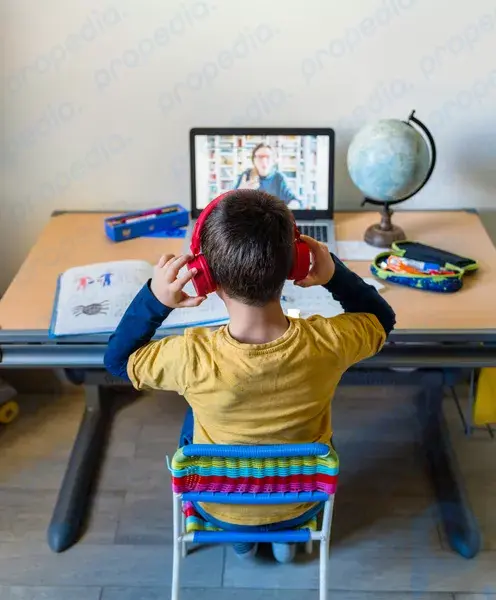
There is another aspect that to some extent explains this parental protest activity. Sociologist Ella Paneyah noticed this: for the first time, parents heard how their children were being taught. What was hidden behind the walls of the school remained an intimate matter between the class and the teacher. And now the parents heard all this and were horrified. customers and educational service providers got to know each other and saw each other. They will remember this.
We are not talking about any radical cases: you cannot beat a child through the phone. This, by the way, is also a big advantage. The amount of violence in school has, of course, decreased because people in general are in less contact with each other. In this sense, social distancing has its bright side. But first of all, we are talking about how teachers talk to children, how they explain the material, and what is the quality of the educational process in general. This responded to a public demand that had been accumulating for a long time to change the quality and type of education. The pandemic, which accelerates everything that happened before and kills what was slowly dying, assimilates this process too. This will have consequences.
ProPedia: But will they be positive for us or is it still difficult to predict?
E.Sh.: Large social processes are neither one-sided nor one-vector. For some, war comes, and for others, their mother is dear. Sometimes the same person can have both in different situations. So it’s not about pros or cons, but about big trends, big trends. It will affect everyone to one degree or another, and it will be both bad and good, depending on what role you play. Since many of us are parents, teachers, and students at the same time, each of us will feel the touch of these changes from different sides.
ProPedia: So, we won’t come out of this mess the same, and the dream that our children, like in the old days, will go to school every day and have full access to full-time offline education, will remain dreams?
E.Sh.: You know, the children will go to school. I have the good fortune to live in the Moscow region, and here the children go to school. They returned after the summer holidays and are studying safely. And it's better than what it was.
There will be no school completely without an online component, nor will there be a complete transition to online education. But one may fear that in this way the weakest will be discriminated against.
Rural schools, for example. We will close your school, but we will provide you with Internet access. Study at home, don't go anywhere. This can happen, and it is very bad. Closing a school in a settlement is killing that settlement. Everyone knows this. Therefore, here an additional tool simply appears on how to do this, and this closure no longer looks so inhumane. We’ll close the school, but you won’t have to drive on these terrible roads, here’s a phone number for you, we’ll even give it to you for free, we’ll install a tower, and you’ll have a translator. That's how you learn. And then we will pretend that you have exactly the same diploma as those people who went to a real school in the city. This is bad.
ProPedia: Упомянут такой важный момент, как снижение уровня «плохих» социальных взаимодействий в школе. Но весь этот сложный год, получается, напряжение оставалось и копилось дома, в семьях. И тут невозможно обойти тему домашнего насилия — по новостной повестке может создаться впечатление, что она на нездоровом подъеме, и в очень невыгодном положении оказываются в первую очередь женщины. При том, что законодательное решение вопроса о санкциях за причинение вреда внутри семьи особенно не продвинулось. Вы говорили, что административный арест — оптимальная мера наказания для тех, кто поднимает руку на близких…
E.Sh.: There are several rather complex legal aspects here, but since the topic is difficult, when you start, you need to explain it carefully, because people hear something very different. Not because they don’t listen well, but because their eyes get clouded, especially for those who have experienced this. Indeed, I consider the partial decriminalization of Article 116 of the Criminal Code of the Russian Federation (“Battery”) to be the correct measure. Administrative proceedings are faster and cheaper than criminal proceedings, and in addition, such cases are no longer cases of private prosecution, in which the complainant is obliged to collect evidence himself.
But the decriminalization of Article 116 is meaningless and harmful without the next step: the adoption of a law on domestic violence with its main, basic element - prevention. The purpose of the law on domestic violence is to prevent serious and especially serious crimes. It provides for a number of norms that we do not currently have in legislation to ensure that a criminal offense does not occur. The first of these norms is a temporary ban on approaching.
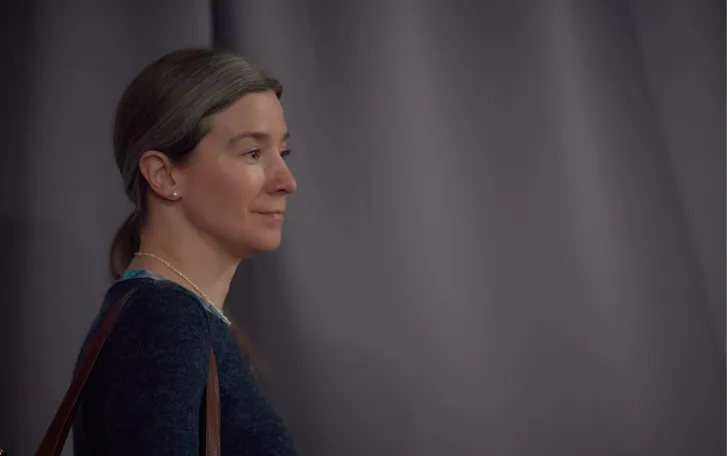
ProPedia: Is there a chance that in the near future all laws and regulations will form a harmony that will truly protect the weak in the family, and everyone will understand the consequences, consequences, and mechanisms? Now everything looks very sad - people are sitting at home, tension is growing.
E.Sh.: First, I’ll disagree with you a little. Indeed, in conditions of general lockdown, any violence becomes domestic, because people are nowhere except at home. This is true. But we do not have data that allows us to say that in Russia there was a surge in domestic violence in 2020. This does not mean that it did not happen, but there is no data. And without data, we judge on the basis of random evidence - there was a case, the media reports about it. And this is not a very good thing. We will receive survey data based on the results of 2020, there will be information from the Judicial Department of the Supreme Court, and crime statistics will appear. Then we can find something.
Quarantine or a pandemic exacerbates tensions in the family, it's true. But this is not the same as an increase in violence. There are many sad laws in criminology, including this one: violence against loved ones does not follow the same trends as violence against strangers.
Domestic violence is influenced by much more ancient and terrible mechanisms; it is a specific irritation that close people cause in us. You have to be very civilized to be able to process it.
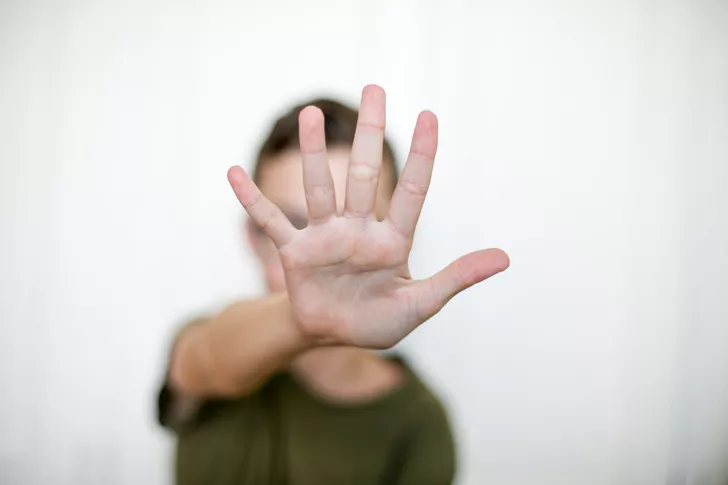
Do you understand what the average case of domestic violence is? This is not a case of psychopathy or some sudden madness. This is word for word, an escalation of the usual everyday conflict and now there are two corpses. My point is not that people are not to blame - they are, but that this is an area in which, unfortunately, not everything lends itself to social engineering. Let us tell ourselves in a moment of sadness that we will never completely overcome violence. But what can we do? Reduce its level and change its structure. That is, there are fewer crimes in general, and among them there are fewer serious violent ones. What is needed for this? Preventive measures to stop conflict from escalating to murder. Of course, they do not come down to just a ban on approaching, but it is a very useful thing.
ProPedia: Can it be implemented in our country with little effort, in a few steps?
Е.Ш.: Это хороший вопрос. Существует мнение, что наша правоприменительная система настолько дурна, что нельзя давать ей в руки никаких новых инструментов, она их обязательно использует во вред. Это неправда. Наша правоприменительная система достаточно дурна, но при этом она функциональна. У нас преступность снижается. У нас, правда, и раскрываемость преступлений снижается — никого не поймали, значит, и сажать некого, все довольны: и казаки, и разбойники. Однако, при всех претензиях к нашей системе как правоохранительной, так и правоприменительной, нельзя сказать, что если их распустить или они внезапно перестанут работать — будет лучше. Будет хуже.
I must tell you that in 2020, compared to 2019, according to measures of institutional trust, the police in the eyes of society have grown somewhat. Compared to 2019, 2020 is generally a year of growing trust in institutions, and this is good. One of the highest increases in percentage points for 2020 was trust in charities, local authorities, regional authorities, the media, and even in such non-obvious objects of trust as Russian banks and medium and small businesses.
ProPedia: It turns out that our law enforcement system has a certain resource that it needs to learn to use in order for us to live better?
E.Sh.: It is necessary to pass new laws, monitor how they are implemented, ensure that this implementation is comprehensive, and this complexity consists of training law enforcement officers to apply the new norms. By the way, there are even public organizations that educate police officers.
The domestic violence law should at least be looked at first. It hasn't even been included yet. He became a victim of a coincidence. The law that the Federation Council posted for public discussion is, of course, bad. There are two more options: this is the so-called HRC version, in the creation of which I participated a little; and the project of Oksana Pushkina. Her project is the broadest, the Federation Council’s project is the narrowest, ours, as I believe, as an interested party, is the most compromise. The bill proposed by the Federation Council was supposed to be submitted for consideration at the beginning of the year, and was declared by Valentina Matvienko a priority for the spring session of the upper house of parliament for 2020. But in 2020, first there was a constitutional reform, and then a pandemic.
The law, between you and me, will still be there, although in what form it will be adopted is a question. But we would like to take at least some first steps towards this, because the purpose of the law is not to give all Russians family happiness, but to reduce the number of serious and especially serious crimes. We have no goal more ambitious than reducing the murder rate. Escalation is the main characteristic of domestic violence. Therefore, prevention is everything here. It is most important. More prevention means fewer victims. Less prevention means more victims. Everything is quite simple here.
ProPedia: It turns out that we will do what we have learned very well - wait. In the meantime, I propose to sum up one more result of the year. It seems that 2020 has become a year of women’s debuts and triumphs in politics: here we can recall Svetlana Tikhanovskaya, Kamala Harris, Maia Sanda, and a number of other personalities. What do you make of these female players in the arena and the trend itself?
E.Sh.: Let me not evaluate the person, it’s not mine. But the trend is much more important. Because many will be built into it, whose names we don’t even know now, and they don’t even know that they will be built into it.
ProPedia: Can you guess who we’re talking about?
E.Sh.: No, I don’t know, moreover, it doesn’t matter. The process called feminization is a very extensive one. It is truly global, socio-economic. It consists, briefly formulated, in increasing women's participation in all spheres of life.
“Daughter of the village”, childless stepmother, iron lady: who is Kamala Harris, who can take Joe Biden’s place
Leaving politics aside for a moment, the following thing must be said: on a planetary scale, the size of the workforce is increasing. More and more people are working, and more and more women are working. For Russians, this does not look like news, because all our women have been working since 1917, but, nevertheless, there are all sorts of regions of the world where this had to be and is being achieved.
In civilized countries, women have been visible on the social stage for quite some time, they speak, participate, make decisions, but there are still not so many of them at the top floors of both corporate and political management. What does this distribution look like?
There are quite a lot of women in both administration and business, but the higher we rise, the less often we meet them. This is the problem called the “glass ceiling”.
There will be a lot of women in the municipal administration, almost the majority - but not among city mayors. There will be many women in healthcare, but few among chief physicians and hospital directors. There will be a lot of them in education and even among school directors - but not among university rectors. Here, in fact, is the problem. Has it been resolved? No. Will it be resolved? Yes, because it is recognized as a problem.
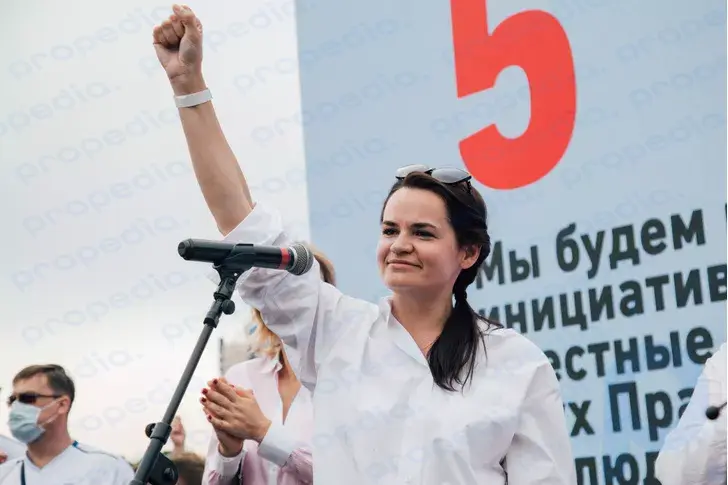
It’s already difficult to say publicly that this is happening, because women have less inclination to leadership, they, you know, are so soft, so compromising, in general, family is more important to them. All this chatter has ceased to be socially acceptable. There are, of course, still backward corners of the world in which one can talk such nonsense in public, but this field is shrinking. Such talk has no scientific basis and justifies the existing social inequality, which is supported by artificial restraining methods.
It is not men who are better than women or women who are better than men. No one is better than anyone. Moreover, people who aspire to leadership positions are quite similar to each other. They belong to the “boss” subtype. Or those who want to be bosses. And there is more of this in them than masculine or feminine, if at all there is “male” or “female” in relation to social behavior. Women are not better than men, but diversity is better than monopolism.
Therefore, a rational strategy is the seemingly absurd requirement to introduce certain percentages of people of a certain type into the boards of different companies. Why? Because if you have your entire board of directors made up of old white boys, then they have a certain set of knowledge, a certain social experience and view of the world. They will all agree with each other, and they will be terribly comfortable together. But the quality of your management will decrease, because they only know what they know, nothing more.
And if out of your 10 board members you have 3 old boys, 3 old girls, and different people of different colors, ages and social backgrounds, then they bring with them a variety of experiences. And this creates the notorious synergy. It's the same in politics. This especially applies, of course, to parliament. There should be variety. Because voters are different, and they will delegate different people. They want their representatives to be like them.
ProPedia: It turns out that the drama of Svetlana Tikhanovskaya’s story is completely unrelated to her gender? She gets a lot of disparaging comments because she is a woman. However, it should be noted that she probably also does not belong to the type of boss...
E.Sh.: Yes, this is a completely different story. This is a story about a personalist autocracy that has reached its limit in development and has lost the foundations on which its legitimacy was based. In such a situation, indeed, a random person becomes a symbol of protest, but not its leader. It happens.
How housewife Tikhanovskaya became the face of the opposition and why Belarusians believed her
And quite often such anti-authoritarian protests on a moral basis, on the foundation of moral rightness felt by the protesters, are associated with women's participation. A striking example is the Mothers of the Plaza de Mayo, Argentine women who protested against the kidnappings and disappearances of their loved ones. These were many years of protests, and three of their original leaders were killed. These, of course, were more turbulent years than the current ones, but still. When dealing with autocracies, it is useful to remember this.
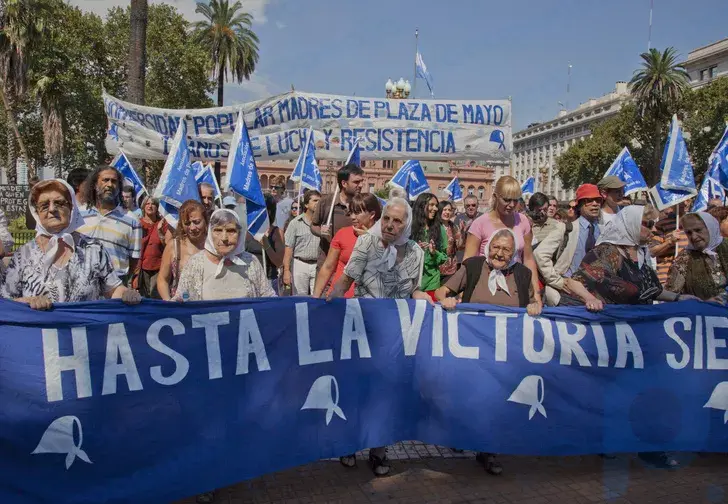
The protest “you are doing something that should not be done, we don’t want to tolerate it anymore” is often associated with women and sounds more convincing on a woman’s behalf. In addition, a protest with women's participation is declaratively non-violent. This is often seen as a disadvantage. They say they would send out strong men, take something by storm, and then they would defeat everyone. I think that in the Belarusian case, taking anything by storm would not have any other political consequences other than the arrival of Russian armed forces there, that’s all.
I think the nation-building process that is taking place in Belarus is more important than the immediate political result. This may sound a little inhumane, since people are suffering, and every subsequent week or month of maintaining this impossible status quo means new victims. But Belarusians are making a collective biography for themselves, forming their own national legendarium. They did not have such a basis for national unity before, and now it has appeared.
ProPedia: Speaking about the tragedy of the relationship between women and power, it is impossible to ignore the death of Irina Slavina. What was it - self-sacrifice, the last straw?..
E.Sh.: Unfortunately, I didn’t know her, and I’m unlikely to engage in psychoanalysis, analyzing the reasons. Indeed, it was a monstrous story that amazed everyone. But from time to time this happens in political history, when people see no other way out for their protest, for their anger, for their powerlessness, for their inability to put up with the existing state of affairs, except for self-harming behavior. Unfortunately for those who think about this, it must be said that the horror of an event does not necessarily lead to consequences commensurate with this horror. You can’t imagine yourself as a grenade that will blow everything up now. When the moment comes, any straw will break the camel's back. Anyone can become a symbol, we have already talked about it. Generally speaking, there are many other tools in civil action,
ProPedia: In Nizhny Novgorod, Mikhail Iosilevich, associated with this absurd case, continues to be persecuted. He wanted to involve you as a political expert who would help prove that he was in no way connected with a banned public organization, but the investigator considered that you too were

